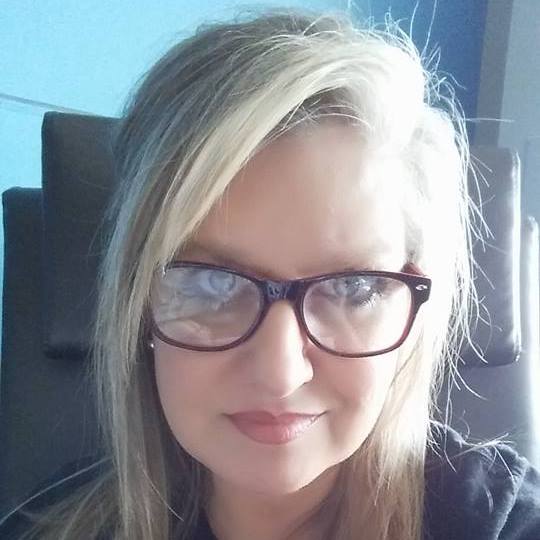I have been in the finance industry, in some fashion, for the majority of my life. However, my passion for playing with money began at a much younger age.
Growing up, my sister and I spent a lot of time at my grandparent’s house. We loved going there for a weekend sleepover, or even better, for weeks at a time throughout the summer. During our visits we were pampered, as grandchildren typically are, but my grandpa (“Papa”) also used the time to teach us some valuable lessons...how to get the best bang for your buck when shopping.
Most Sunday afternoons were spent clipping and organizing coupons. Yes, he was truly one of the original extreme couponers. Throughout the week we would travel from store to store, with an ice chest in tow, to collect the best deals on various items we had coupons for, or had simply found at a great price. He stressed the importance of saving money on the items you purchased, to always look for the best deal even if that meant waiting a while to buy it, and to invest that extra savings to earn even more.
As he explained how banks functioned, more so how loans worked, he emphasised the importance of having money on hand to make purchases. That taking a loan out, except for a vehicle or house, could be avoided by pinching pennies and having a little patience.
Although I didn’t quite pick up everything he was throwing down, I mean I was only about six-years old at the time, I did listen intently. As luck would have it, his advice came in handy one Wednesday morning, when I eagerly made my entrance into the lending world.
A Life Lesson Brought To Life
It was hamburger day in the cafeteria at school. My sister and I took our lunch everyday, except on hamburger day. It was something we looked forward to all week. So one can imagine my surprise when I entered the kitchen on this particular Wednesday morning, excited and ready to start the day with a bowl of Captain Crunch, only to find my mom making a couple of PB&J sandwiches. As I reminded her of the importance of said day, she rebutted with what can only be described as a haunting and traumatic experience to my six-year old ears… “I forgot to go to the bank, so I don’t have any money for your lunch. You’ll have to skip hamburger day this week”. Devastated. I was utterly devastated.
But then a flash of calm came over me. You see, I had taken some of what my Papa had said to heart. He encouraged me to save my allowance so I would have it for something I really wanted, and I really wanted that burger. So I made a proposal to my mom...I would let her borrow the money, and she could pay me back after she went to the bank. She agreed and the disaster was averted. As I made my way back down the hallway, I remembered something else my Papa said. So when I handed the cash over to my mom, I did so with pride, and while smiling, explained she would need to pay me interest on the “loan”. Shocked, and a bit confused, she agreed. So began my career in finance.
Avoiding Disaster
What can we take away from this story? First, yes, I was apparently a six-year old loan shark. More importantly, saving along the way awards you the ability to handle a disastrous situation a bit easier, all while being able to live the lifestyle you want, or have grown accustomed.
Many think it takes a complicated plan, with several spreadsheets, charts and graphs to get an emergency savings program started. It doesn’t. It can be as simple as a jar on the counter you throw extra change into. However, it is probably a good idea to have something a little more robust in place than a couple of extra dollars worth of change per week.
How Much Is Enough
A question we get quite often, and probably one of the largest discouragements people have for not saving an emergency fund is the fact they don’t know how much they should save. The answer to that is simple; I don’t know either.
I don’t know because I can’t predict the future. I don’t know when your dishwasher is going to bite the dust, or if a repair will be needed on your air conditioning unit. Nor can I predict if both will happen at the exact same time. But having some funds put back for those types of catastrophes can help cushion the blow when life decides to sucker-punch you in the gut.
Small Changes Can Make A Big Difference
Tweaking your budget to accommodate these situations is not as difficult as it may seem. Take a look at where you are spending your money, and decide if certain expenses are really necessary. Sometimes a small change can make a huge difference. Consider the differences in water at 211° and 212°.
At 211° you can make a nice cup of coffee or tea. When that temperature increases just one degree, such a small change it almost seems insignificant, it becomes something quite powerful. Steam. That one insignificant change can now produce electricity and power a locomotive.
While that strong cup of coffee may be a great pick me up, I’d much rather have a strong financial safety net to fall back on.
Michelle Kuehner is a Registered Investment Advisor Representative and Managing Director for Personal Money Planning. She is also a Certified Credit Counselor and Certified Financial Health Counselor, writes Fix Our Budget blog, and has over 23 years of experience in the financial industry.


No comments:
Post a Comment